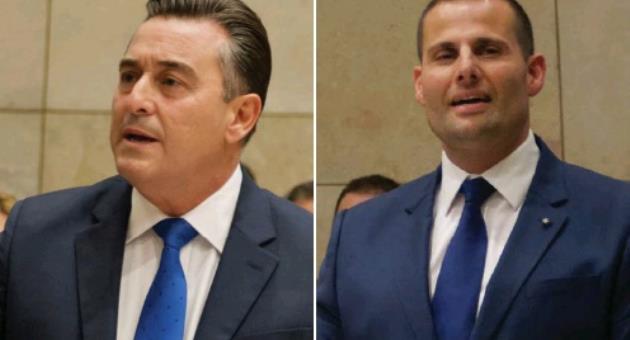
It is a cliché of domestic political analysis to say our elections are presidential ballots crushed into a parliamentary system. Dom Mintoff was the prototype of the post-colonial demagogue. Eddie Fenech Adami’s profile started small. He was depicted in cartoons in the Labour press as a swaddled baby, an infant in comparison with the pipe-puffing, belt-buckle-sporting, raring-steed-riding, strong man Mintoff.
Eventually Eddie Fenech Adami’s profile grew and grew and in 1992 his photo on billboards looking straight into the eyes of passers-by was all the campaigning the PN needed to do. Alfred Sant and Lawrence Gonzi featured as stars in their drama, their faces plastered on the streets of towns and village where they technically weren’t even candidates.
In 2017 the polls were clear. Joseph Muscat was an electoral asset for his party and Simon Busuttil was less so for his. Labour plastered their leader’s face and name all over the country, branding the campaign “josephmuscat.com”. The PN campaign did not ring to the tune of “I choose Simon Busuttil”. They went for “Jien nagħżel Malta” instead.
The thinking was that given a choice between Muscat and Busuttil too many would choose Muscat. Perhaps in a choice between Muscat and Malta, some of them would choose Malta.
Malta woke up this morning to the name Robert Abela plastered everywhere, on all those billboards that for 6 long months advertised the film awards or some puerile Presidential wisdom about being in the covid pandemic together. It’s Robert Abela, Robert Abela, Robert Abela everywhere now. And it’s likely to remain that way for the next 33 days.
It is certainly true that the Labour leader’s approval rating, though on a downward trend, is still very high and considerably higher than Bernard Grech’s. The logic of the Abela v Grech advantage for the Labour Party is sound.
But after the experience of the 2017 election there’s a distinct sourness around presidential campaigns in a parliamentary system that doth protest too much about the miraculous qualities of the leader. It is all well and good when leaders remind us that they did a good job as prime minister and deserve re-election, or when leaders tell us their challenge to the incumbent is a promise of better government. By and large that is why we have campaigns.
But Joseph Muscat and Robert Abela get their parties to shove down the country’s collective throat the idea they are inevitable. The message there is that they must be re-elected to power despite any misgivings voters might have about them.
The lesson of Joseph Muscat’s re-election is that confirmation in an election only goes so far. Re-election does not wipe away all they wish to hide, not for long anyway. The inevitability of their re-election is not equivalent to the inevitability of their absolution.
Bernard Grech is relatively new, he is beset by party weaknesses which will be discussed later in this series, and he hasn’t quite fired up national enthusiasm for him and his party. He has 33 days in which to change that but short of losing by a greater margin than his predecessor lost in 2017 he doesn’t have much to prove, and he has even less to lose.
He can afford to be serene at the campaign, to look calm and on top of the job he needs to do. If he resists the temptation of promising heroics (like reversing grey listing in 3 months, for example, or rebuilding the temple in 3 days) he’ll be what he needs to be: an alternative to the panicky, touchy, all too highly strung Robert Abela.